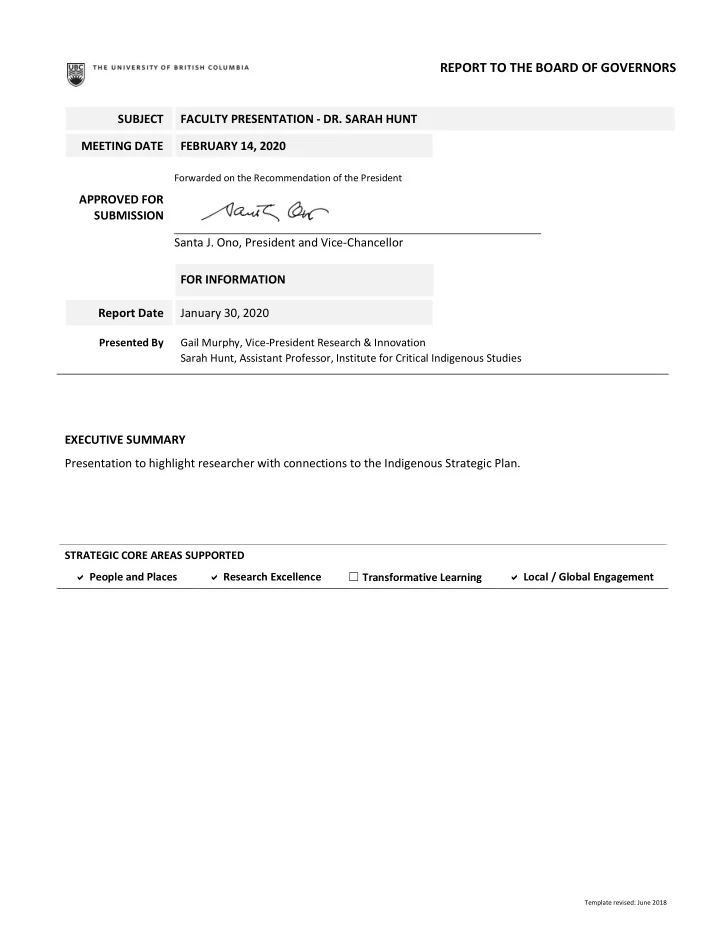

REPORT TO THE BOARD OF GOVERNORS SUBJECT FACULTY PRESENTATION - DR. SARAH HUNT MEETING DATE FEBRUARY 14, 2020 Forwarded on the Recommendation of the President APPROVED FOR SUBMISSION Santa J. Ono, President and Vice-Chancellor FOR INFORMATION Report Date January 30, 2020 Presented By Gail Murphy, Vice-President Research & Innovation Sarah Hunt, Assistant Professor, Institute for Critical Indigenous Studies EXECUTIVE SUMMARY Presentation to highlight researcher with connections to the Indigenous Strategic Plan. STRATEGIC CORE AREAS SUPPORTED People and Places Research Excellence ☐ Transformative Learning Local / Global Engagement Template revised: June 2018
Gathering at the Shoreline: Redefining Justice Through Coastal Praxis Tłaliłila’o gwa / Dr. Sarah Hunt Institute for Critical Indigenous Studies & Department of Geography, UBC sarah.hunt@ubc.ca
Research question: What does justice feel like for coastal women? 2018-2020. Reawakening Networks of Justice in Everyday Expressions of Indigenous Law: Decolonial approaches of coastal women , funded by SSHRC Insight Development Grant.
the methodology is itself an activation of coastal approaches to justice which are of concern in this project through the embodied knowledge of coastal people Tribal Journeys, 2017. Photo taken at Campbell River.
• Research gatherings are organized into two seasons: winter (the spirit) and summer (the body) Method: • Follow seasonal patterns of life among coastal peoples shoreline • Foster knowledge about ‘justice’ via collective gatherings cultural and ocean-oriented practices • Research activities include gathering clams (shoreline), spiritual bathing (river), harvesting plant medicines (forest), canoe journeys (ocean/shore), preparing salmon (house), preparing and weaving cedar (forest )
Indigenous Political Ecologies • How do understandings of environment -human relations shift in framing justice, self-determination and cultural survivance for coastal peoples’ across the nested scales of lands/waters, homes/families and bodies? • How are notions of the ‘environment’ challenged by coastal knowledges embedded in Indigenous languages, place names, land- and ocean- based practices, food gathering, ceremony and everyday expressions of collective coastal identity? • What is required of scholars, policy makers, and others concerned with justice for coastal peoples to fully account for coastal paradigms of justice in which the wellbeing of waters, lands, animals, ancestors, people and nations is intertwined?
What does justice fee l like for coastal people? Maintaining integrity of the emplaced interscalar relations by which we understand ourselves and continue our ways of being over time.
Recommend
More recommend